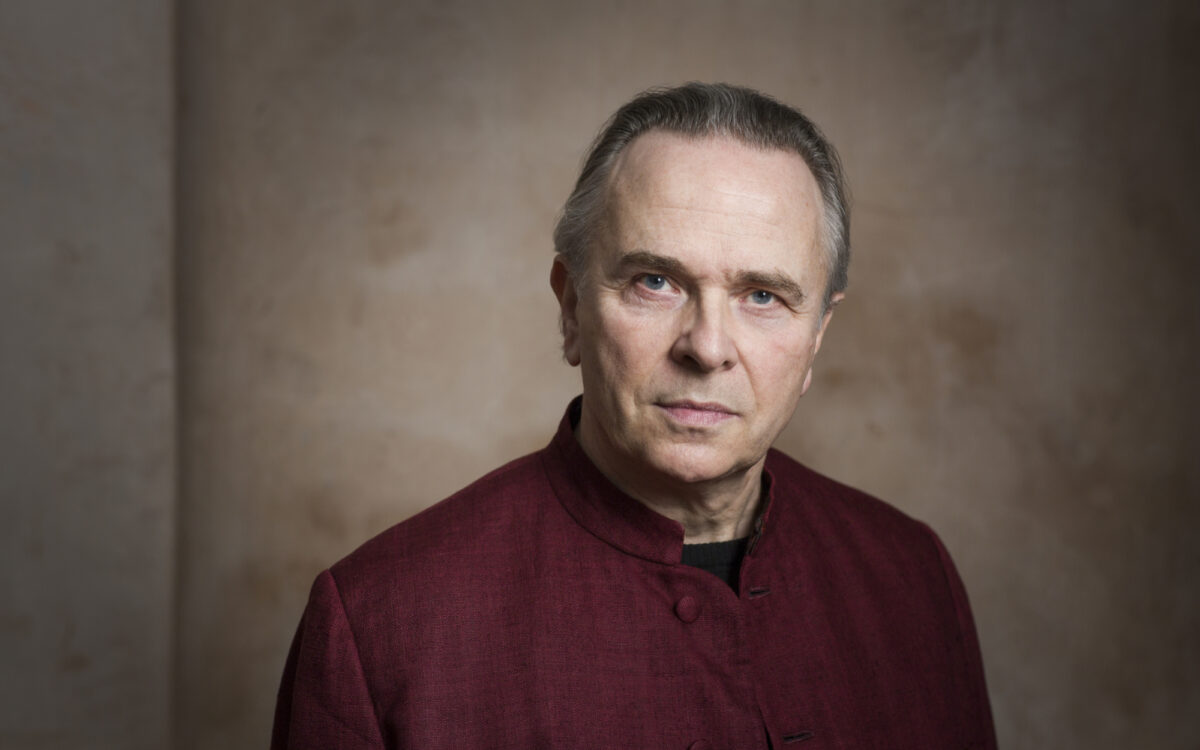The Noonday Witch
Antonín Dvořák was born in Nelahozeves (Mühlhausen), Bohemia, on September 8, 1841, and died in Prague on May 1, 1904. He sketched Polednice (The Noonday Witch) in just three days, January 11-13, 1896, and wrote out the orchestral score from February 14 to February 27. The first performance, along with those of The Water Goblin and The Golden Spinning Wheel, was on June 3 at the Prague Conservatory, conducted by Antonin Bennewitz; a public performance was conducted in Vienna by Hans Richter on December 20, and scores of all three symphonic poems were published by Simrock at the same time.
The score of The Noonday Witch calls for piccolo, 2 flutes, 2 oboes, 2 clarinets, bass clarinet, 2 bassoons, 4 horns, 2 trumpets, 2 trombones, tuba, timpani, triangle, cymbals, bell, bass drum, and strings (first and second violins, violas, cellos, and double basses). The Noonday Witch is about 15 minutes long.
When Antonín Dvořák returned to his native Bohemia in 1895 after three productive if not entirely happy years in the United States, he had already finished composing his last and most popular symphony, his Ninth, From the New World, and it had been successfully premiered in New York. He had not, however, finished with orchestral composition, and before the year was out he completed the B minor cello concerto that has stood ever since as one of the greatest monuments of that instrument’s repertory. Shortly after that, he turned his attention to the Czech folklorist and poet Karel Jaromír Erben (1811-1870), whose anthologies had earlier furnished him with texts for several songs and a large-scale cantata, The Spectre’s Bride of 1884. This time, Dvořák chose four ballad texts from Erben’s most popular collection, A Garland of Folk Legends, and in a fine burst of creativity between January and November 1896 used them as the basis of four symphonic poems which, though not as well-known as his late symphonies, are notable for their harmonic imagination, melodic sparkle, and impeccable orchestral vividness. The Water Goblin (Opus 107) is the creepiest of the four, The Golden Spinning Wheel (Opus 109) the longest and most fanciful, The Wood Dove (Opus 110) the most mystical, and The Noonday Witch (Opus 108) the shortest (at about fourteen minutes) and most dramatically poignant. These four works, plus one more symphonic poem, his Heroic Song (Opus 111), composed in 1897, were Dvořák’s last works for orchestra.
The poem of The Noonday Witch, in twelve quatrains, tells of a harried mother, preoccupied with getting lunch ready for the family, and threatening to summon the Noon Witch if her child doesn’t stop misbehaving. Dvořák’s symphonic realization outlines the story with some freedom, in four basic sections, like a symphony in four movements compressed into one. The opening melody, in C major, Allegretto, 2/4, moves quickly into an agitated passage (Poco più animato) depicting the mother’s exasperation; this subsection is repeated and further developed. In the second section, the Noon Witch actually appears, first with a mysteriously descending and slowly oscillating chromatic harmony; this is followed by a sinister melody for bass clarinet and bassoon in octaves over tremolo cellos and basses.
The scherzo-like dance in 3/8 that follows develops the C major theme, but now in E minor, Allegro; lively cross-rhythms in 2/8 are superposed on this, as the Noon Witch and the mother struggle for the child. After a climax, the dance subsides, and the final section begins with the church bells sounding the noon hour. The father returns (Andante, D major, dotted rhythm) from working in the fields to find his wife collapsed in a faint. He revives her (Più lento, arpeggiating violins), and only then do they realize that the child is dead, as the Noon Witch’s theme (Maestoso, A minor, trumpets and trombones, fff) resounds like a braying laugh.
Mark DeVoto
Professor Emeritus of Music at Tufts University, musicologist and composer Mark DeVoto is a graduate of Harvard College and Princeton University, where he received his Ph.D. in 1967.

